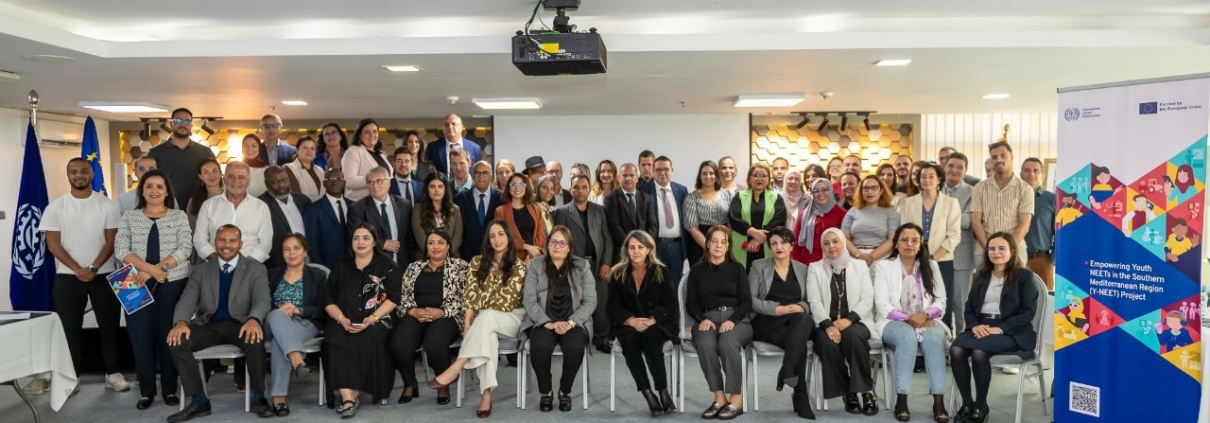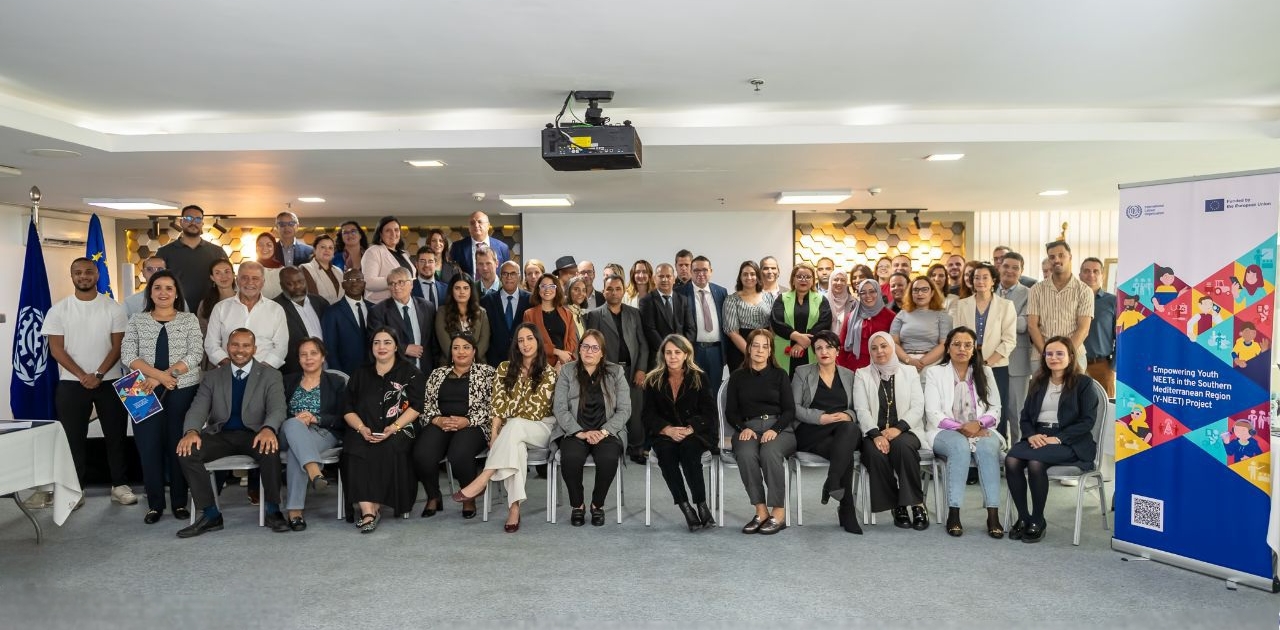PROMOTING YOUTH INTEGRATION IN THE MEDITERRANEAN: HIGHLIGHTS FROM THE YOUTH-NEET REGIONAL WORKSHOP IN CASABLANCA
On April 24 and 25, 2025, the IECD and the Mediterranean New Chance Network (MedNC) brought together over 70 stakeholders from five Mediterranean countries for a regional workshop in Casablanca dedicated to Second Chance Schools (E2C).
The goal: to share experiences, strengthen synergies, and advance the professional integration of early school leavers.
On April 24 and 25, 2025, the IECD and the Mediterranean New Chance Network (MedNC) brought together over 70 stakeholders from five Mediterranean countries for a regional workshop in Casablanca dedicated to Second Chance Schools (E2C).
The goal: to share experiences, strengthen synergies, and advance the professional integration of early school leavers.
This event took place as part of the Y-NEET project, funded by the European Union and implemented by the International Labour Organization (ILO), with technical support from the European Training Foundation (ETF).
It gathered institutional representatives, civil society organizations, trainers, employment professionals, companies, and young people themselves from Morocco, Tunisia, Portugal, Spain, and Montenegro.
Concrete solutions to tackle early school leaving
With one in three young people in the MENA region classified as NEET (Not in Employment, Education or Training), Second Chance Schools are emerging as a relevant, inclusive, and innovative response.
Through presentations, working groups, and field visits, participants exchanged ideas on pedagogical practices, support tools, public-private partnerships, and key levers for sustainable integration.
The visit to the Sidi Moumen E2C in Casablanca highlighted the impact of a model based on shared governance between NGOs and public authorities, where training is adapted to local realities and the needs of vulnerable youth.
A stronger dialogue with the private sector
At the heart of the discussions was the need to reinforce the link between training and employment. The workshop emphasized the importance of more actively involving the private sector in designing training pathways and defining the skills required.
Several key recommendations emerged, including formal recognition of E2C programs, the creation of certification or labeling systems, and the need to strengthen the capacity of pedagogical teams.
A growing regional dynamic
Driven by the IECD and the MedNC network, this workshop marks a key milestone in building a Mediterranean ecosystem dedicated to supporting vulnerable youth.
It confirms that social innovation, peer learning, and international cooperation are powerful levers to address the challenges of early school leaving.
Participants left with practical tools, new ideas, and renewed conviction: by joining forces, stakeholders on both shores of the Mediterranean can create lasting solutions for a generation seeking opportunity.


